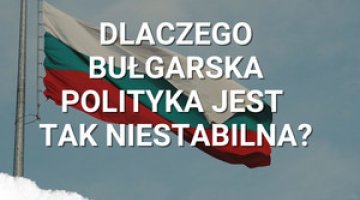Analyses
Bulgaria: The role of nuclear energy and renewable sources of energy emphasised in the country’s energy strategy
The Bulgarian parliament on 1 June approved the Energy Strategy until 2020 prepared by the centre-right government led by Boyko Borisov. The form in which the document has been prepared indicates that Sofia wants to improve the country’s energy security by developing the nuclear potential in its electric energy sector, building gas infrastructure and using renewable energy sources (RES).
The strategy is to offer a response to the three key challenges the Bulgarian economy is facing: the need to reduce its heavy dependence on imports (almost all of its oil, gas and nuclear fuel supplies come from Russia), lowering the economy’s energy consumption and coping with climate-related challenges. This document stresses the need to improve the energy efficiency and to increase the share of RES in the country’s energy balance (from 9% in 2008 to 16% in 2020). The document also emphasises the role of nuclear energy and suggests extending the period of operation of the existing power plant in Kozloduy and obtaining an additional 2,000 megawatts of power through the development of the Kozloduy power plant or building a new one in Belene. The authors of the document strongly indicate the need to diversify the routes of supplies, envisaging for example the development of gas interconnectors and the construction of an LNG/CNG terminal at the Black Sea coast. Under pressure from the opposition, the government removed the part which provided for the need to sign long-term gas contracts with Russia (those currently in force are due to expire at the end of 2012).
The strategy presents the programme for the improvement of Bulgaria’s energy security in a comprehensive way. However, it is difficult to state which of the proposals presented in it will be implemented. Since the country’s legislation is rather unfavourable to investors, the development of RES seems unlikely. The emphasis the strategy has put on the role of the nuclear energy sector also does not necessarily mean that the country’s nuclear potential will be developed. This document should be seen more as a vote for the development of the nuclear energy sector in the context of the recent debate on the future of nuclear energy in the EU. It is also a sign of support from a major part of the political elite for the continuation of the Belene project, the implementation of which is still uncertain due to doubts regarding its cost-efficiency and problems with funding. <dab>




